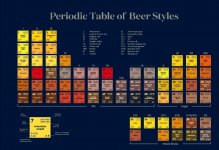Clinamenic
Binary & Tweed
Did a quick search for ideonomy here, and didn't find anything, so there is a good chance it hasn't been brought up before. I recently found out about this, and it bears a great resemblence to much of what I was trying to do under the protean banner of 'nootopology' and 'psychocartography' and whatnot. A "science of ideas" is what Patrick Gunkel calls it, and MIT preserved hundreds of pages of his notes, diagrams and writings about it.
I swear, its like I was on the same wavelength as this guy, only he went much, much deeper.
Some select diagrams of his:
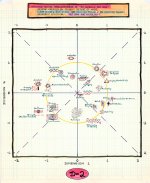
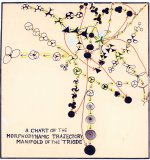
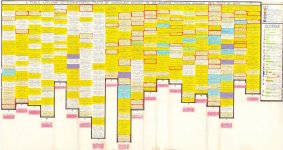
And here are some artifacts of mine, which enter this territory of mapping out ideas/values/discourse/etc:
The Ismopticon:
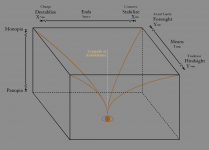
Modular Generalist Program:
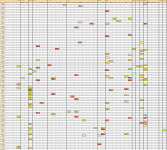
Psychocartographic sketches:
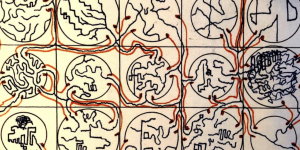
Mapping ideology to topics:
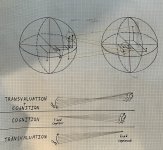
Naturally much of this isn't science proper, in my opinion, although I'm not sure what Gunkel thought about it all in that respect. It assumes an autistic renaissance aesthetic, much of the time, transposing scientific epistemological trappings onto largely non-scientific discourse - but in so doing can still unlock novel insights, which is/was part of the motivation for me. The generation of useful ideas, etc.
Anyway, as far as ideonomy goes, I suspect that the advent of semantic embedding may offer some technical methodology needed to bring this realm of discourse a bit closer to science proper. That is, from ideonomy to ideonomics. If we are to really map out discourse in n-dimensional idea space, we'd be better off generating vector embeddings than just ascribing generalized qualia to axes, as I did and as Gunkel appears to have done. That said, I haven't read through Gunkel's ideonomy treatise(s) yet, so maybe he has already thought through this.
I swear, its like I was on the same wavelength as this guy, only he went much, much deeper.
Some select diagrams of his:



And here are some artifacts of mine, which enter this territory of mapping out ideas/values/discourse/etc:
The Ismopticon:

Modular Generalist Program:

Psychocartographic sketches:

Mapping ideology to topics:

Naturally much of this isn't science proper, in my opinion, although I'm not sure what Gunkel thought about it all in that respect. It assumes an autistic renaissance aesthetic, much of the time, transposing scientific epistemological trappings onto largely non-scientific discourse - but in so doing can still unlock novel insights, which is/was part of the motivation for me. The generation of useful ideas, etc.
Anyway, as far as ideonomy goes, I suspect that the advent of semantic embedding may offer some technical methodology needed to bring this realm of discourse a bit closer to science proper. That is, from ideonomy to ideonomics. If we are to really map out discourse in n-dimensional idea space, we'd be better off generating vector embeddings than just ascribing generalized qualia to axes, as I did and as Gunkel appears to have done. That said, I haven't read through Gunkel's ideonomy treatise(s) yet, so maybe he has already thought through this.

